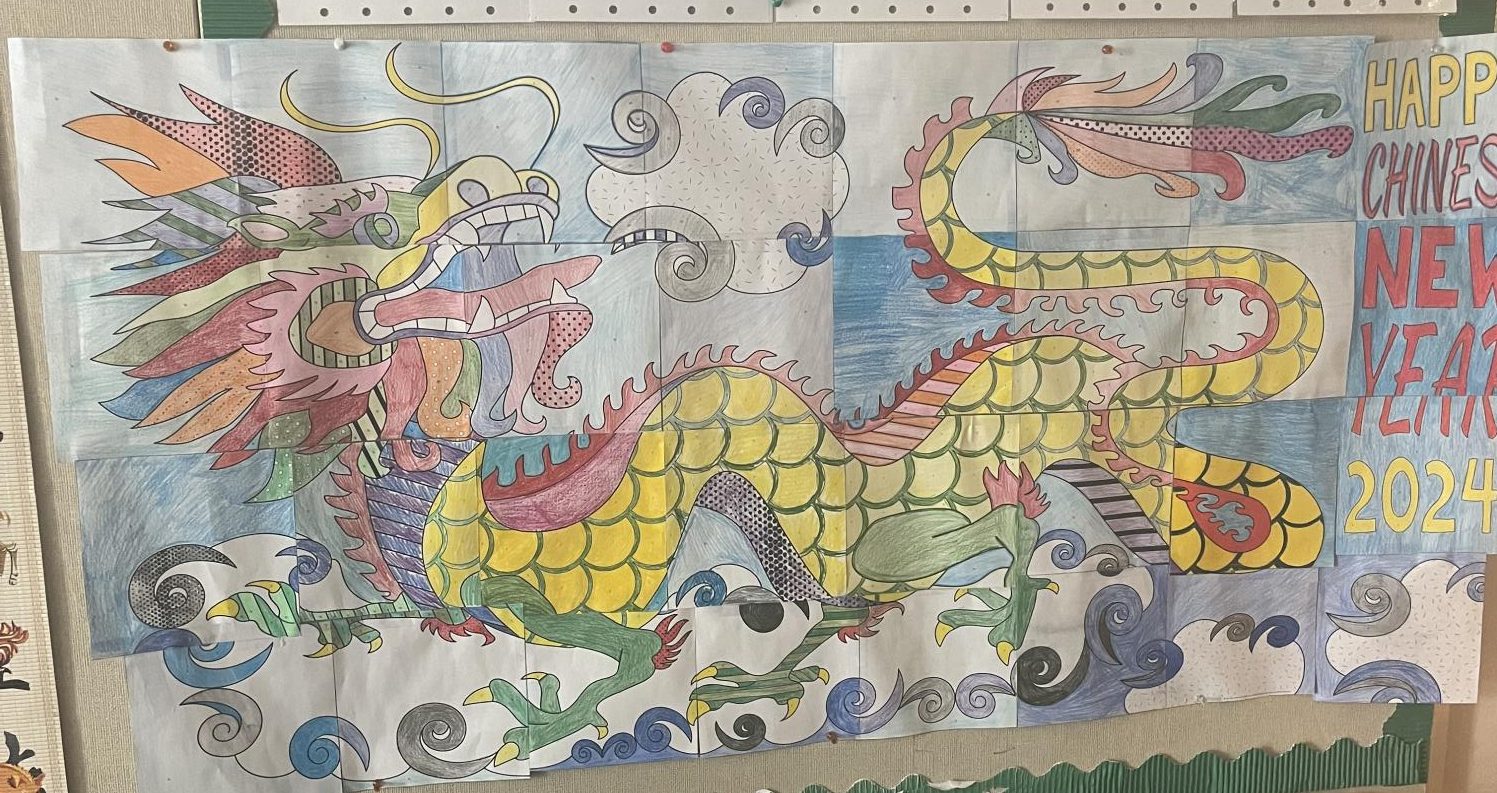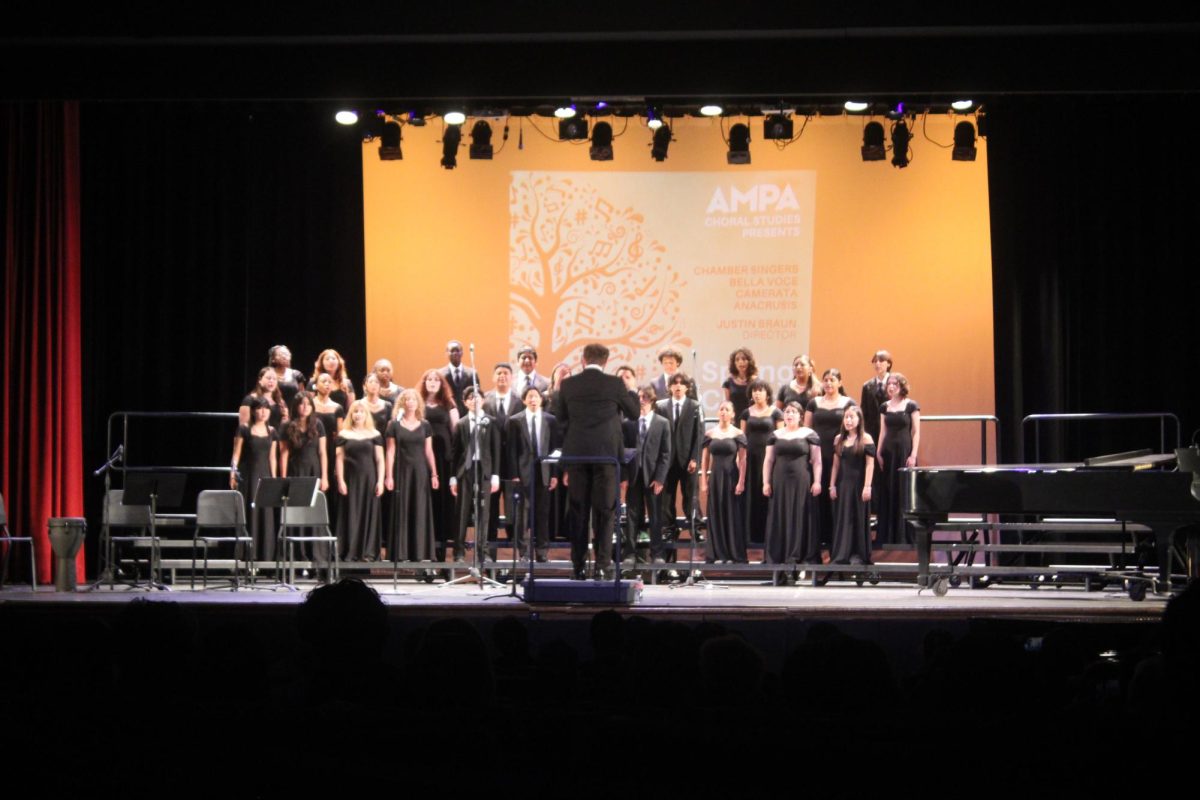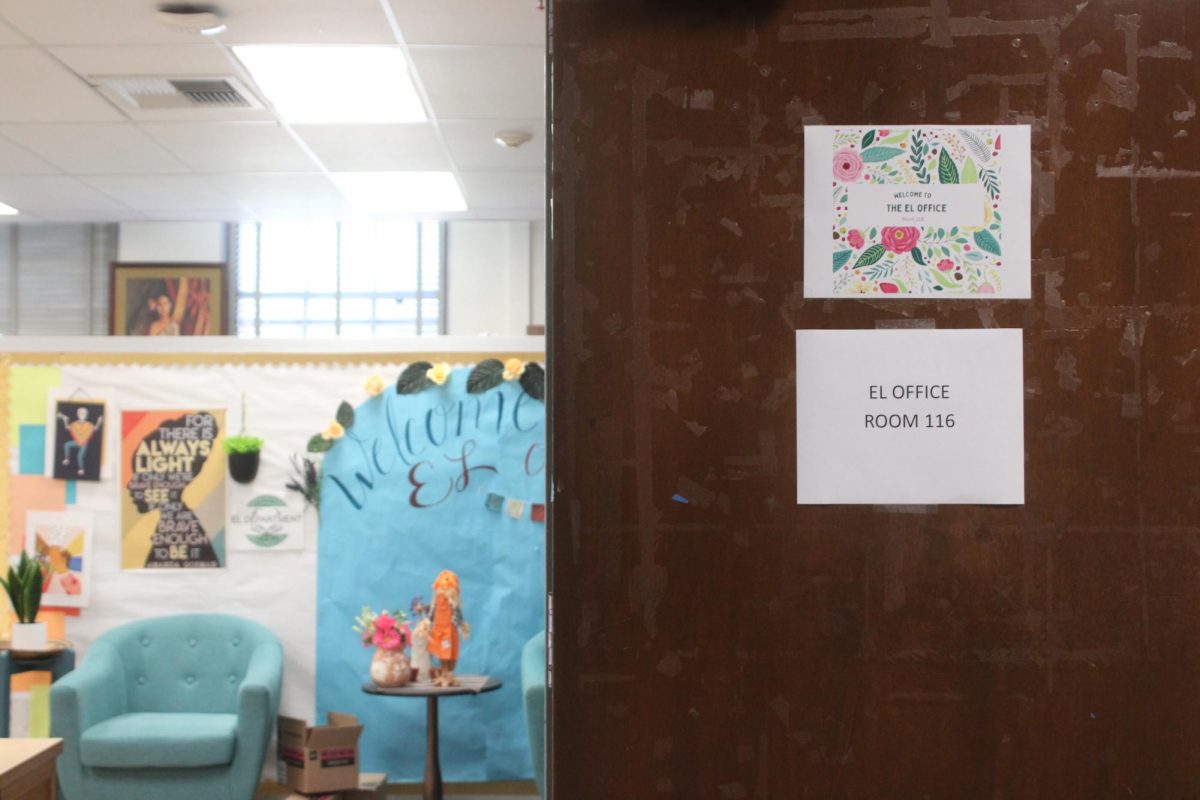Happy Year of the Dragon! Feb. 10 kicked off the 2024 Lunar New Year, which begins on the first new moon in the lunar calendar. Here at Hamilton, Lunar New Year is celebrated in and out of class. With New Years and Valentine’s Day over, students find themselves looking for the next celebration to throw down for. It’s safe to say that Saint Patrick’s Day isn’t a fan favorite–not many people enjoy the color green or the unnecessarily painful pinches that sometimes leave you sore for the rest of the day.
Unlike these holidays, the Lunar New Year is more than just a day-long celebration. It lasts 16 days, ending on Feb. 24 this year. This tradition is observed in many Asian cultures, and celebrated at Hamilton as the Chinese New Year in Mandarin classes.
Mandarin classes are taught by Mr. Jung, and can meet students’ language requirements to graduate. With the lowest level course Mandarin 1 and the highest Mandarin 4, some students take Mandarin throughout their time in high school, though most students stop after they meet the A-G requirement after two years. Students taking Mandarin are exposed to all different parts of Chinese culture, from written language to music and even the school life of students in China.
Aidan Belcher and Chiara Van Ert are two AMPA sophomores in Mandarin 3. Mr. Jung says these two students are excellent and show very hard work with great results.
Chiara said she has a long history with Mandarin.
“I actually took Mandarin since preschool and I wasn’t going to continue it in high school, but I thought it would be easier, so I took Mandarin 2 in freshman year and now I’m taking Mandarin 3 in sophomore year,” Chiara said. “I just want to get my bi-literacy award.”

Aiden Belcher, another sophomore in AMPA, said, “I chose to take Mandarin because I felt like it would be the most difficult for me to learn and be my biggest challenge compared to something so similar to English such as Spanish. So by taking a language that’s completely new to me I thought it would take me out of my comfort zone and teach me something brand new.”
Mr. Jung makes sure his students learn about and participate in various activities in honor of the new year.
“My favorite part, I would say, is for students to gain knowledge of other cultures and other languages as well and for students to see the different aspects of the culture,” he said.
This year, students worked on their calligraphy skills and participated in handing out red envelopes with words of encouragement– one of the many parts of Chinese culture. One of the most notable traditions Mr. Jung has kept up over the years is taking his classes to visit other language classes and wish them happy new year in Mandarin, along with teaching them how to write the saying and correctly pronounce it.

“Those are some of the things I enjoy the most,” Mr. Jung said. “Well needless to say, I love putting together the red envelopes. I put little messages–positive little messages for instance like ‘make progress in your studies’…there’s a lot of things but that’s one tradition that I enjoy.”
Students also learn about the Chinese Zodiac, which goes hand in hand with the new year. We mentioned the year of the dragon earlier. That’s because 2024’s Zodiac animal is a dragon! The Chinese zodiac consists of 12 different animals in this exact order: Rat, Ox, Tiger, Rabbit, Dragon, Snake, Horse, Goat, Monkey, Rooster, Dog, and Pig. Each animal has its own unique story and meaning. The dragon stands for good luck.
Luck plays an important role in the celebration of the Chinese New Year. Families tend to deep clean their living spaces in order to attract new beginnings and possibly attract good luck for the year. People are told not to wash their hair on the first day of the Lunar New Year to avoid washing away good luck. But luck isn’t the only focus of this celebration, the Lunar New Year is a time for families to get together and bond. Families enjoy partaking in dinner together to celebrate the incoming year ahead and as a way of just spending time together.
The Chinese New Year comes with many traditions and taboos. For example, you can’t say any negative words during the Chinese New Year celebration, or your entire year may be ruined by said negativity. People tend to eat certain foods, like noodles or sticky rice balls.
Aidan and Chiara commented on what tradition they found the most interesting in regards to the Lunar New Year.
“The one that we practiced in class the other day was calligraphy,” Aidan said. “Doing that practice for the first time, especially in a classroom environment, it was definitely something that I found to be relieving and just to be fun in general.”
“I like their festivals,” Chiara said.
As we wrap up the Lunar New Year, it’s great to see other cultures being recognized within the school. Mr. Jung tasks his students with presenting a positive New Years slogan to other language classes. This year, Mandarin 3 visited Arabic and Spanish classes.
Though the celebration of the Lunar New Year ended Feb. 24, the Year of the Dragon remains.
The Lunar New Year can serve as a reminder to us to uphold our health, cleanliness, family, and future possibilities. So make sure you clean your room, treat negativity like a thing of the past, and stand on big business all throughout 2024.








